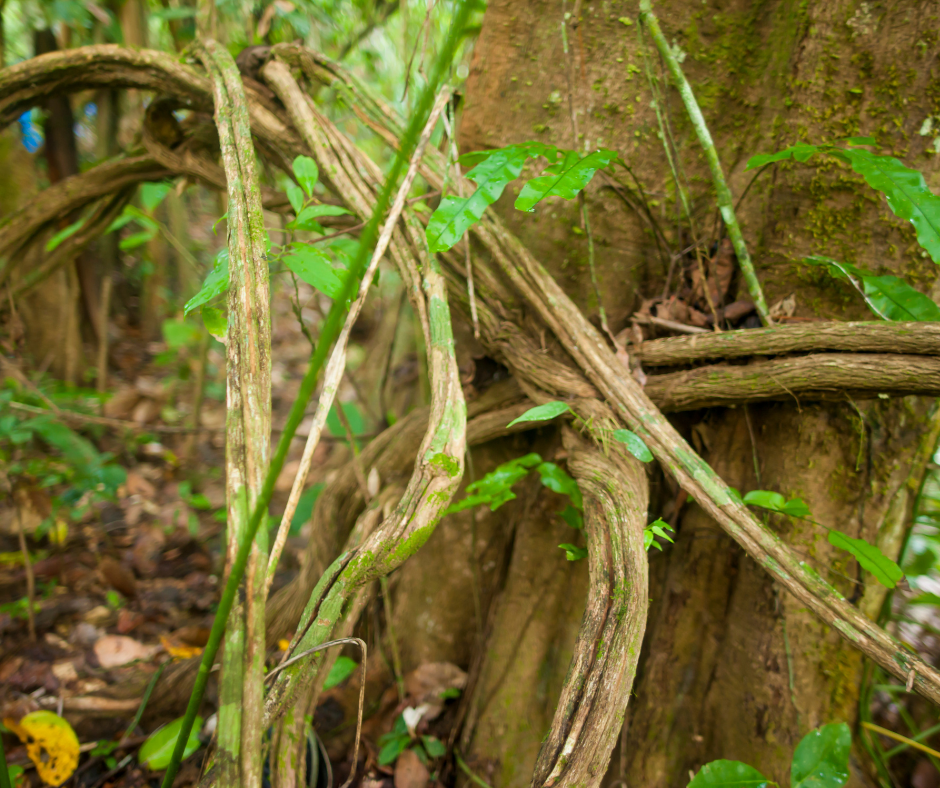Key Takeaway:
- Ayahuasca has been used for centuries in traditional healing ceremonies and may have positive psychological effects, such as reducing anxiety and depression, promoting empathy, and improving overall well-being.
- However, there are potential negative psychological effects, such as inducing intense and unpleasant hallucinations or exacerbating underlying mental health conditions.
- Physically, Ayahuasca use may lead to nausea, vomiting, and other unpleasant side effects, but it may also have positive physical benefits, such as reducing inflammation and boosting the immune system.
- Long-term, Ayahuasca has been associated with lasting positive effects, such as increased mindfulness and spirituality, but there is also a potential for negative outcomes, such as persisting hallucinations or exacerbating mental health issues.
- When using Ayahuasca, it is important to be aware of the potential risks and side effects and to ensure safety by seeking out reputable retreat centers or shamanic practitioners and preparing properly for the experience.
Ayahuasca is a traditional Amazonian brew made from the Banisteriopsis caapi vine and the leaves of the Psychotria Viridis plant, which contains the powerful psychedelic compound DMT (dimethyltryptamine). Ayahuasca has been used for centuries by indigenous people in the Amazon Basin for spiritual, healing, and visionary purposes. When ingested, it produces a range of physical, emotional, and psychological effects. Please note that the effects of ayahuasca can vary from person to person, and the intensity of the experience can depend on factors such as dosage, individual sensitivity, and the specific preparation of the brew.
Psychological Effects of Ayahuasca
As someone who has experienced the effects of Ayahuasca firsthand, I can attest to its powerful psychological impact. In this segment, we’re diving into the psychological effects of Ayahuasca, offering insight into both the positive and negative effects of this sacred plant medicine.
First, we’ll explore the positive psychological effects of Ayahuasca, including its potential to heal trauma, deepen spirituality, and promote overall well-being. Then, we’ll take a closer look at the potential negative psychological effects of Ayahuasca, such as anxiety, paranoia, and confusion. Through this comprehensive analysis, we can better understand the lasting and profound impact of Ayahuasca on the human psyche.

The Positive Psychological Effects of Ayahuasca
Ayahuasca, the powerful psychedelic substance, is known across the globe for its incredibly transformative capabilities. The chemical compound found in Ayahuasca, dimethyltryptamine (DMT), creates an intense psychoactive experience that helps people navigate their innermost selves.
The positive psychological effects of Ayahuasca are numerous and multifaceted. People who consume the brew often have a spiritual awakening and report feeling more empathic, introspective, and mindful. It breaks down barriers between individuals as well as within oneself, helping reframe thoughts and emotions in new ways.
Ayahuasca has also been known to have therapeutic value. Many people struggling with depression or anxiety, ptsd, and addiction have found relief after just one session. It serves as a reset button of sorts – allowing people to process complex emotions or memories that they may have buried deep inside themselves for years. Book An Ayahuasca Retreat Ayahuasca Is A plant-based medicine that may have side effects. Make sure and do independent research before attending a retreat.
The benefits don’t stop there. Ayahuasca ceremonies often include time spent in nature which not only enhances relaxation but also detoxes both mind and body. The cathartic release experienced by those using Ayahuasca leaves them feeling lighter and free from negativity they didn’t even know was affecting them.
If you’re considering taking part in an Ayahuasca ceremony, there are some important things to remember. Come with an open mind and heart, be prepared to face your fears head-on, take care of your physical health (hydration and nutrition), prepare yourself mentally with meditation or mindfulness techniques that work for you.
Negative Psychological Effects of Ayahuasca
Ayahuasca is a sacred plant medicine that has been used by Amazonian natives for centuries to induce heightened awareness and visionary experiences. While many believe it to be a miraculous therapeutic tool, there are still negative psychological effects associated with the use of Ayahuasca that cannot be overlooked.
Ayahuasca contains psychoactive compounds that affect brain chemistry and may result in altered states of consciousness which can be very scary for individuals that are not prepared for the experience. These compounds interact with serotonin receptors in the brain, producing profound hallucinations, vivid imagery, and altered sensory experiences.
While some users report positive experiences, others have found the psychological effects of Ayahuasca to be distressing. The reasons behind this may vary- it could stem from prior mental health conditions or unsuitable expectations. However, regardless of individual circumstances, it is critical to acknowledge the possibility of these complications.
The potential for challenging experiences brought about by Ayahuasca should not discourage individuals from exploring this traditional healing modality. Instead, one must approach consumption with caution and ensure proper guidance from experienced professionals. In this way, they can gain valuable insight into themselves and their emotional experience through safe exploration.

Physical Effects of Ayahuasca
The Positive Physical Benefits of Ayahuasca
Ayahuasca is a plant-based psychedelic infusion that has been used in traditional medicine for centuries. The past few decades have seen an increasing interest in the potential of ayahuasca to bring positive physical benefits to those who consume it.
One of the most notable positive physical benefits of ayahuasca is its ability to improve gut health. Research indicates that ayahuasca contains compounds that can reduce inflammation and promote healthy microflora growth in the gut. It is also thought that ayahuasca can help treat conditions such as Irritable Bowel Syndrome (IBS).
Ayahuasca may also possess anti-inflammatory properties, making it a potential treatment option for chronic inflammation associated with autoimmune diseases. Furthermore, studies suggest that ayahuasca can help regulate blood sugar levels, thus reducing the risk of developing type 2 diabetes.
Interestingly, ayahuasca’s positive physical effects may even extend to improved vision. Amazonian shamans have historically used the brew as a way to enhance their night vision during hunting sessions.
Based on anecdotal evidence, people who consume ayahuasca often report experiencing relief from pain and greater levels of energy and vitality. Scientific studies are needed to fully understand these claims, but there is growing evidence supporting ayahuasca’s ability to bring about these effects.
Investigating the Negative Physical Effects of Ayahuasca
The consumption of Ayahuasca, a traditional Amazonian plant medicine, has been linked to a range of physical effects. Investigating the potential negative physical effects of Ayahuasca is crucial to understanding its impact on the human body.
Ayahuasca works by combining two plants – the ayahuasca vine and the leaves of the chacruna shrub. The combination produces powerful hallucinations and purgative effects, which can lead to vomiting and diarrhea. Here are some of the negative physical effects of ayahuasca:
- Nausea and vomiting: Ayahuasca is well-known for causing nausea and vomiting, which are considered purgative and cleansing experiences by indigenous cultures.
- Diarrhea: Some users may also experience diarrhea as part of the purging process.
- Increased heart rate and blood pressure: Ayahuasca can temporarily raise heart rate and blood pressure, which may be dangerous for individuals with pre-existing heart conditions.
- Dizziness, sweating, and tremors: These are common physical effects that may occur during an ayahuasca experience.
Researchers have identified several reasons why Ayahuasca can have negative physical effects. Firstly, consuming the plant can lead to dehydration and electrolyte imbalances due to nausea and vomiting. Secondly, different batches of Ayahuasca can differ in potency, meaning that some individuals may experience stronger physical effects than others. Thirdly, some individuals may be allergic or hypersensitive to Ayahuasca or its constituents.
Interestingly, recent research has found that the composition of Ayahuasca is far more complex than previously thought. The plant contains more than just DMT – a psychoactive compound responsible for its hallucinogenic properties – but also harmine and harmaline, which are MAOI inhibitors. These inhibitors can interact with certain medications or foods and pose risks for those with pre-existing medical conditions such as hypertension.

Long-term Effects of Ayahuasca
Many people who have consumed Ayahuasca have reported experiencing long-lasting positive effects, such as increased self-awareness, improved mental health, and spiritual awakening.
The lasting positive effects of Ayahuasca can be attributed to the active compounds present in the plant mixture that work on the brain’s chemistry. Ayahuasca contains DMT (Dimethyltryptamine) and MAO inhibitors (Monoamine oxidase inhibitors), which work together to create a unique experience for the user. The DMT causes profound hallucinations, while the MAO inhibitors prolong their duration to several hours. This combination leads to a deeply introspective experience that often results in spiritual insights and personal growth.
The Potential Negative Long-term Outcomes of Ayahuasca
Ayahuasca – a powerful psychedelic brew originating from the Amazon rainforest – has recently gained popularity for its potential benefits in treating depression, anxiety and addiction. However, as with any drug or medicine, there are also potential negative long-term outcomes of ayahuasca that people must be aware of.
The potential negative long-term outcomes of ayahuasca stem from its active components: DMT (N,N-dimethyltryptamine) and MAO inhibitors. DMT is a potent hallucinogenic compound that induces intense experiences, often involving a sense of interconnectedness with the universe and spiritual entities. MAO inhibitors prevent the breakdown of DMT in the body, prolonging its effects and increasing its potency.
These effects can cause profound psychological insights and changes. However, some people may have adverse reactions to these substances that can manifest in persistent negative states such as psychosis or anxiety disorders. In fact, there are documented cases of individuals developing prolonged states of psychological disturbance after consuming ayahuasca.
Moreover, ayahuasca is not suitable for everyone. It should not be used by pregnant or breastfeeding women, people with certain medical conditions such as bipolar disorder or schizophrenia or those who take certain medications like antidepressants.
Researchers have not found evidence that the DMT in ayahuasca causes physical dependence or addiction. Moreover, users typically do not develop a tolerance for the drug, according to the National Institute on Drug Abuse.
This powerful plant medicine comes with both risks and opportunities; it is essential to approach it mindfully and responsibly.

Five Facts About the Lasting Effects of Ayahuasca:
- ✅ One of the reported lasting effects of ayahuasca is increased mindfulness and self-awareness. (Source: Medical News Today)
- ✅ Ayahuasca has been used in traditional medicine to treat a range of psychological and physical conditions. (Source: Healthline)
- ✅ Many individuals report improved mental health and a reduction in symptoms of anxiety and depression after taking ayahuasca. (Source: New Scientist)
- ✅ The long-term effects of ayahuasca on brain function and mental health are still being studied. (Source: Scientific American)
- ✅ Ayahuasca experiences are highly subjective and can vary greatly from person to person. (Source: Vice)
FAQs about What Are The Lasting Effects Of Ayahuasca?
What are the lasting effects of Ayahuasca?
The lasting effects of Ayahuasca are known to affect a person’s mental, emotional, and physical well-being. Some of the most common effects include long-lasting positive changes to one’s outlook on life, beliefs, and values, as well as improved emotional stability, self-awareness, and empathy.
Can Ayahuasca cause any negative lasting effects?
Yes. Ayahuasca can cause negative, lasting effects. While the long-term negative effects of ayahuasca are still under investigation, some users have reported experiencing negative effects such as insomnia, panic attacks, and psychosis.
How long do the lasting effects of Ayahuasca last?
The lasting effects of Ayahuasca can vary from person to person, and can last anywhere from several weeks to several months. Some people have reported experiencing lasting effects for years after their initial experience.
Can Ayahuasca help with addiction?
Yes. Ayahuasca has been shown to help individuals struggling with addiction by providing a transformative experience that can lead to improved emotional stability, self-awareness, and empathy. However, it should not be considered a substitute for traditional addiction treatment methods.
What types of mental health conditions can Ayahuasca potentially treat?
Some types of mental health conditions that Ayahuasca can potentially treat are depression, anxiety, and PTSD. However, further research is needed to determine its efficacy as a treatment method for these conditions.
Is it safe to take Ayahuasca?
Probably, ayahuasca should only be taken under the supervision of experienced practitioners in a safe and controlled environment. It is important to note that ayahuasca can interact with certain medications and medical conditions, so it is important to speak with a healthcare provider before taking it.
About Author

Kitty Ramirez is a passionate writer, explorer, and advocate for the preservation and understanding of indigenous cultures and traditional plant medicines. As the author of the blog, Kitty shares her knowledge and experiences from her many journeys across the globe, connecting her readers with the wisdom and healing practices of ancient cultures.
Born and raised in a multicultural family, Kitty developed a deep curiosity about the world and its diverse cultures at a young age. Her adventurous spirit led her to embark on a life of travel, exploring the far corners of the Earth in search of transformative experiences and a deeper understanding of human connection.
Throughout her travels, Kitty has had the opportunity to immerse herself in various indigenous communities, learning from their rich traditions and sacred healing practices. Her encounters with plant medicines, such as Ayahuasca, Sananga, and Rapé, have been particularly life-changing, inspiring her to share the power of these ancient remedies with a broader audience.
Legal Disclaimer: The information, including but not limited to, text, graphics, images and other material contained on this website are for informational purposes only. No material on this site is intended to be a substitute for professional medical advice, diagnosis treatment or recommendation. Ayahuasca is not an FDA-approved substance and side effects have been found. Make decisions based on your own level of comfort as an adult, not from anything you read on this website.






